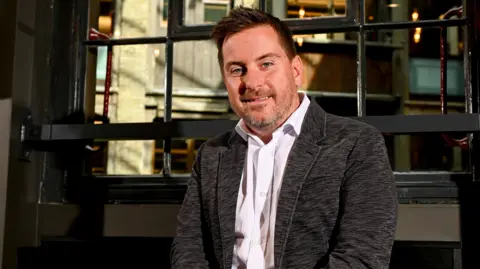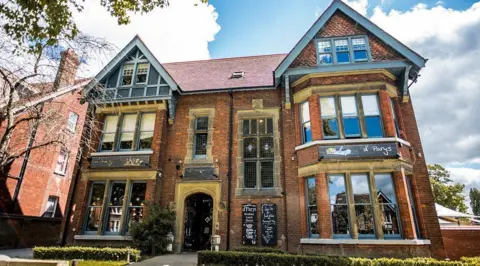- Startups
Week in Pictures: From fatal US plane crash to Russia’s prisoner exchange
时间:2010-12-5 17:23:32 作者:Data 来源:Editorial 查看: 评论:0内容摘要:On Friday, a White House official confirmed to The Associated Press that a probe had been opened, following a report about the impersonation in The Wall Street Journal a day prior.On Friday, a White House official confirmed to The Associated Press that a probe had been opened, following a report about the impersonation in The Wall Street Journal a day prior.
For Searon Yanthan, the founder of Juro Coffee House, the journey began with COVID-19, when the pandemic forced Naga youth studying or working in other parts of India or abroad to return home. But this became a blessing in disguise since they brought back value to the state, says Yanthan. “My father used to say, those were the days when we used to export people,” he told Al Jazeera. “Now it’s time to export our products and ideas, not the people.”Like many kids his age, Yanthan left Nagaland for higher studies in 2010, first landing up in the southern city of Chennai for high school and then the northern state of Punjab for his undergraduate studies, before dropping out to study in Bangalore. “I studied commerce but the only subject I was good in was entrepreneurship,” said the 30-year-old founder, dressed in a pair of smart formal cotton pants and a baby pink polo neck shirt.

The pandemic hit just as he was about to graduate, and Yanthan left with no degree in hand. One day, he sneaked into a government vehicle from Dimapur during the COVID-19 lockdown – when only essential services like medical and government workers were allowed to move around – to return to his family farm estate, 112km (70 miles) from state capital Kohima, where his dad first started growing coffee in 2015.He ended up spending seven months at the farm during lockdown and realised that coffee farmers didn’t know much about the quality of beans, which wasn’t surprising considering coffee is not a household beverage among Nagas and other ethnic communities in India’s northeast.Yanthan, who launched Lithanro Coffee, the parent company behind Juro, in 2021, started visiting other farms, working with farmers on improving coffee quality and maintaining plantations. Once his own processing unit was set up, he began hosting other coffee farmers, offering them a manually brewed cup of their own produce.

Gradually, he built a relationship with 200 farmers from whom he sources beans today, besides the coffee grown on his farm.Yanthan sees coffee as an opportunity for Nagaland’s youth to dream of economic prospects beyond jobs in the government — the only aspiration for millions of Naga families in a state where private-sector employment has historically been uncertain. “Every village you go to, parents are working day and night in the farms to make his son or daughter get a government job,” Yanthan told Al Jazeera.

Coffee, to him, could also serve as a vehicle to bring people together. “In this industry, it’s not only one person who can do this work, it has to be a community,” he said.
So what changed in 2015? Coffee buyers and roasters are unanimous in crediting the state government’s decision to hand over charge of coffee development to Nagaland’s Land Resources Department (LRD) that year. The state department implements schemes sponsored by the federal government and the state government, including those promoting coffee.According to the UN’s criteria, famine is declared when:
Famine is not just about hunger; it is the worst humanitarian emergency, indicating a complete collapse of access to food, water and the systems necessary for survival.According to the World Health Organization (WHO), since Israel’s complete blockade began on March 2, at least 57 children have died from the effects of malnutrition.
What does starvation do to the body?Israel is using starvation as a weapon of war. A
- 最近更新
- 2025-07-07 05:57:59CNN BusinessWhy gasoline prices aren’t tumbling along with sinking oil
- 2025-07-07 05:57:59History Illustrated: The Kerch Bridge is ‘doomed’
- 2025-07-07 05:57:59Video Duration 30 minutes 09 seconds play-arrow30:09
- 2025-07-07 05:57:59Video Duration 27 minutes 59 seconds play-arrow27:59
- 2025-07-07 05:57:59AOL9 surprising factors that can damage your credit score (and how to fix them)
- 2025-07-07 05:57:59What’s the impact of the Israel-Iran conflict on oil prices?
- 2025-07-07 05:57:59Iran’s dual nationals caught between Israeli bombs and family ties
- 2025-07-07 05:57:59Secure and steady returns: 7 best low-risk investments for retirees
- 热门排行
- 2025-07-07 05:57:59Nathan Ambrosioni Finds Sympathy for ‘Bad Mothers’ in Camille Cottin Starrer ‘Out of …
- 2025-07-07 05:57:59Video Duration 00 minutes 12 seconds play-arrow00:12
- 2025-07-07 05:57:59How to pay off your credit card debt
- 2025-07-07 05:57:59Preemptive strike? The media and Israel’s attack on Iran
- 2025-07-07 05:57:59Hamantaschen with Four Fillings
- 2025-07-07 05:57:59Video Duration 27 minutes 59 seconds play-arrow27:59
- 2025-07-07 05:57:59Bill Nighy, Mathew Horne, WWE’s Jordynne Grace Board Fantasy Film ‘Welcome to Paradis…
- 2025-07-07 05:57:59How much can you earn while on Social Security?
- 友情链接
- Fire-hit dunes 'could take years to recover' UK weather forecast more accurate with Met Office supercomputer Meadows film a 'visual love letter' to Skegness Andrew and Tristan Tate will return to UK to face charges, lawyers say Palestinian writer's debut wins Dylan Thomas prize How can traditional British TV survive the US streaming giants? Brazil sues China carmaker BYD over 'slave-like' conditions Scared and malnourished - footage from Gaza shows plight of children and aftermath of Israeli strike Arrests over French cryptocurrency kidnapping plots Pride fringe festival returns with a roller-disco Fake discounts on Shein 'breach law', EU says Are planes crashing more often? Rihanna reveals she is expecting third child with A$AP Rocky Andrew and Tristan Tate will return to UK to face charges, lawyers say Millions more counted as domestic abuse victims as definition widens Giant's Causeway visitors urged not to jam coins into iconic rocks Namibia marks colonial genocide for first time with memorial day 'I didn't know my hoarding was a mental illness' Tolkien statues for village that inspired his work Fact-checking Trump's Oval Office confrontation with Ramaphosa Wetlands founder 'wouldn't recognise' site today An Indian teacher was killed - then he got falsely labelled a terrorist Loose Women's Nadia Sawalha brands ITV cuts 'brutal' Peers demand more protection from AI for creatives New York crypto investor accused of kidnapping Italian tourist Housing tracker: Find out about new homes in your area Drought declared across north-west England New electric bus fleet prepares to hit the streets Housing tracker: Find out about new homes in your area Ostriches facing cull at Canada farm find unexpected allies
